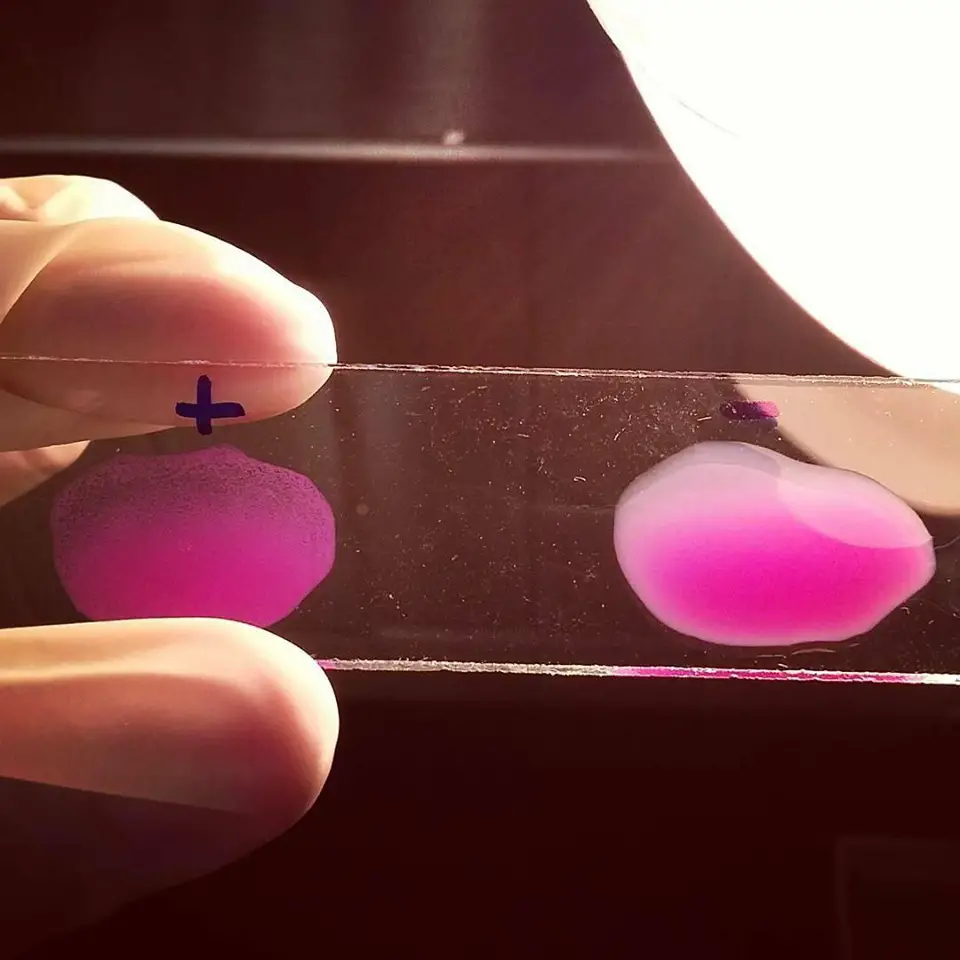Ⅰ. Overview
The Rose Bengal antigen reaction, or buffered antigen, or brucellosis card test, is a rapid agglutination reaction using Brucella abortus as a bacterial suspension, stained with Rose Bengal in a buffered acid medium.
After mixing equal parts of Rose Bengal antigen and serum, the appearance of colored agglutinations is observed in case of brucellosis. The sensitivity limit is 25 IU/ml.
The test highlights IgG and is positive later (2 to 3 weeks ) and the sensitivity of the technique is very high (>95%).
Ⅱ. Rose Bengale test protocol
- Bring the bottle to room temperature (18-30°C). Shake the bottle to homogenize the suspension.
- On the support, deposit 30 μl of the serum to be studied and 30 μl of the buffered antigen.
- Mix with single-use stirrer.
- Shake the mixture from time to time and observe the possible appearance of clumping within 4 minutes.
Ⅱ. Rose Bengale test Interprétation
- Negative reaction : total absence of agglutination → the serum is negative./li>
- Positive reaction : even minimal agglutination → the serum is positive.


☰ If this test is used to screen for brucellosis, it is recommended to confirm a positive result by other techniques (e.g. Wright serology).